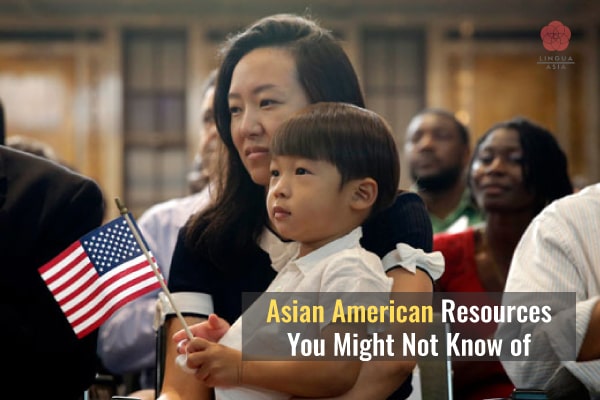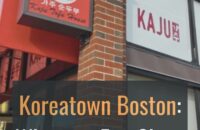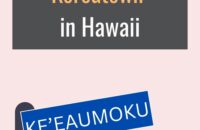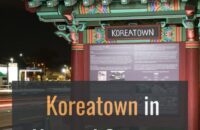From tax breaks to legal aid, there are many free resources for Asian Americans and Pacific Islanders.
This article covers the best benefits available including:
- scholarships
- tax credits
- legal resources
- youth groups
- mental health resources

1. Scholarships for Asian Americans and Pacific Islanders
Asian-American students have more financial aid options than they think. Many students don’t apply for scholarships because they assume they won’t qualify or don’t even know they exist. Some of these are for any minority group, so feel free to apply. I’ve listed them in descending order in terms of award amount and relevance.
The Gates Scholarship
The Gates Scholarship – A scholarship for outstanding, minority, high school seniors from low-income households created by Bill and Melinda Gates. Each year, the scholarship is awarded to 300 student leaders. All students who qualify should apply for this one.
- Who Is Eligible?: High school seniors from a minority background who are Pell-eligible. They must also be a U.S. citizen, national or permanent resident in good academic standing with a minimum GPA of 3.3 on a 4.0 scale.
- Application Deadline: Annually every September
- Scholarship Amount: Scholars will receive funding for the full cost of attendance! Any cost not already covered by other financial aid and the expected family contribution is taken care of.
APIA Scholarship Program
APIA Scholarship Program – APIA Scholars provides scholarships to underserved students with a special focus on those who live below the poverty level.
- Who Is Eligible?: Individuals who are the first in their families to attend college and are representative of APIA community diversity. Especially, those who have placed a strong emphasis on community service as well as solid academic achievement.
- Application Deadline: Annually every January
- Scholarship Amount: $2,500 to multi-year $20,000 awards
AANAPISI Scholarship
Asian American and Native American Pacific Islander Serving Institutions (AANAPISI) Scholarship – One of the largest scholarships for Asian Americans and Pacific Islanders. There are two types, one general, and one specifically for students attending an AANAPISI college. Students can apply for both scholarships at the same time.
- Who Is Eligible?: Students must be a citizen or legal permanent resident of the United States, Republic of the Marshall Islands, Federated States of Micronesia or the Republic of Palau. They must also have at least a 2.7 GPA, write a short answer responses/essay, letter of recommendations and FAFSA application.
- Application Deadline: Annually every November
- Scholarship Amount: $2,500 to multi-year $5,000 awards
Asian Americans and Pacific Islanders are a big deal
Did you know that 7% of the U.S. population can trace their roots to an Asian country? Asian Americans are a vital part of the community bringing unique cultures, languages, food and ideas to enrich the tapestry that makes up America (I feel like there should be a holiday for boba tea alone).
USPAACC
U.S. Pan Asian American Chamber of Commerce (USPAACC) Education Foundation – USPAACC allows major corporations and Asian American businesses to establish their own scholarships. 15-20 scholarships ranging from $3,000 to $5,000 each have been awarded every year to high school seniors nationwide.
- Who Is Eligible?: High school seniors who are citizens or permanent residents of the United States with East, South, Southeast Asian or Pacific Island heritage.
- Application Deadline: Annually every March
- Scholarship Amount: $3,000 to $5,000
Jackie Robinson Foundation Scholarship
Jackie Robinson Foundation Scholarship – JRF offers college scholarships of up to $30,000 over four years and sponsors award winners to attend JRF‘s annual, four-day “Mentoring and Leadership Conference” in New York City. Scholars benefit from a comprehensive, four-year program that includes career guidance, internship and permanent job placement. They also gain opportunities to travel abroad, in addition to leadership and practical life skills training.
- Who Is Eligible?: Graduating, minority high school seniors who are United States citizens with evidence of financial need. They must demonstrate a record of academic excellence and leadership potential as well as a dedication to community service.
- Application Deadline: Annually every January
- Scholarship Amount: Up to $30,000 over four years
Asian Pacific Fund
Asian Pacific Fund – The Asian Pacific Fund wants to help students embark on their dreams with a variety of support programs. They provide 12 different scholarships for undergraduate and graduate Asian American and Pacific Islander students.
- Who Is Eligible?: Each scholarship features different eligibility and application requirements.
- Application Deadline: Varies by scholarship
- Scholarship Amount: Varies
AABA Law Foundation Scholarships
AABA Law Foundation Scholarships – AABA offers several grants to fund qualified summer law clerks to work on projects that help the Asian American community. Applicants must be sponsored by a non-profit legal organization that supervises them for the summer. The grants are funded by the AABA Law Foundation through their Community Service Committee.
- Who Is Eligible?: All current law students may apply. Selection criteria include community service or public interest work for the Asian Pacific American (APA) community. They must demonstrate leadership in the community, be in financial need and committed to the Bay Area.
- Application Deadline: Varies by scholarship
- Scholarship Amount: Varies
Don H. Liu Scholars Program
Don H. Liu Scholars Program – Founded in 2014 by two past presidents of the Asian American Bar Association of New York, the Program seeks to identify, cultivate and inspire future Asian American leaders within the legal profession. Their ultimate goal is to address the barrier to advancement that many face.
- Who Is Eligible?: U.S. citizens or permanent residents of Asian descent enrolled full-time as a 1L in a J.D. program. They must demonstrate academic accomplishments as well as financial need; and intend to practice in the private sector in the New York City metropolitan area.
- Application Deadline: Annually every November
- Scholarship Amount: Varies
AICPA Scholarship for Minority Accounting Students
AICPA Scholarship for Minority Accounting Students – The AICPA Minority Scholarship awards grants to outstanding minority students with accounting as a major. This program has provided over $14.6 million in scholarships to 8,000 accounting scholars.
- Who Is Eligible?: Selection is based on academic achievement; demonstration of leadership and volunteerism; and overall commitment to becoming a licensed CPA professional.
- Application Deadline: Annually every March
- Scholarship Amount: Up to $5,000 per academic year
Korean American Scholarship Foundation (KASF)
Korean American Scholarship Foundation (KASF) – A non-profit organization that meets the financial needs of Korean-American students seeking higher education. KASF also provides scholarships to qualified descendants of Korean War American veterans.
- Who Is Eligible?: Korean American and international students from Korea enrolled full time. Descendants of veterans who served in the Korean War may also be eligible. Applicants must show financial need and academic achievement.
- Application Deadline: Varies
- Scholarship Amount: $500-$5,000
Korean Ancestry Grant at the William Orr Dingwall Foundation
Korean Ancestry Grant at the William Orr Dingwall Foundation – The Korean Ancestry Grant supports many immigrant students in various fields of study. The number of Korean Ancestry Grants is decided by the number of exceptional candidates and the available Foundation funds.
- Who Is Eligible?: Students of Asian descent should apply, but those with Korean ancestry receive preference. Applicants must be undergraduates with at least a 3.5 GPA.
- Application Deadline: Annually every April
- Grant Amount: $10,000
Organization of Chinese Americans
Organization of Chinese Americans – For over ten years, OCA has provided assistance to deserving Asian and Pacific Islander students for their college education. The diverse scholarships are based on achievement and financial need.
- Who Is Eligible?: The organization offers many scholarship options for APA students at the undergrad and graduate levels. Each scholarship features different eligibility and application requirements.
- Application Deadline: Varies by scholarship
- Scholarship Amount: $2,000 to $2,500
Chinese American Medical Society Scholarship
Chinese American Medical Society Scholarship – Since the early 1970’s, the Chinese American Medical Society has provided scholarships to outstanding students in need of financial assistance. The scholarship annually awards 3-5 students of Chinese descent in the field of medicine, dentistry and science. In addition to medical and dental school enrollment, letters of recommendations and proof of good academic standing are required.
- Who Is Eligible?: The scholarship is open to all first, second and third year medical or dental students in good standing at a medical or dental school in the USA.
- Application Deadline: Annually every March
- Scholarship Amount: Varies
South Asian Journalists Association
South Asian Journalists Association – The South Asian Journalists Association and SAJA Group awards five scholarships for South Asian students pursuing a career in journalism.
- Who Is Eligible?: Undergraduates and graduate students continuing their studies in the fall. Applicants must be SAJA members and from the United States or Canada. They must either be of South Asian descent (includes: Afghanistan, Bangladesh, Bhutan, India, Maldives, Nepal, Pakistan and Sri Lanka) or show a keen interest in covering South Asia and the diaspora.
- Application Deadline: Annually every June
- Scholarship Amount: $2,000
2. Tax credits and resources for Asian Americans
Unfortunately, there are no Federal tax breaks specifically for Asian Americans, but there are programs at the state and county levels geared towards minorities. Make sure to do a quick search around tax season for special programs.
Earned Income Tax Credit (EITC) – A large number of Asian Americans qualify but don’t take advantage of this credit. You just need to earn below $57,000 and have a social security number.
Child Tax Credit – Can be claimed for any child with a social security number, as long as the household doesn’t earn over a certain limit.
IRS information in Asian languages – As of writing this article, there’s info in Mandarin Chinese, Korean and Vietnamese.
Asian American population growth
The Asian American population has nearly doubled in the last two decades. 22.5 million Americans have backgrounds from 20 countries in East, South East and Southern Asia. The number is expected to reach 46 million by 2060.
3. Asian-American owned small business resources
There are a number of small business organizations to help Asian American entrepreneurs. They offer services such as business counseling, networking and access to capital. While these credits and programs aren’t just for Asian American business owners, some qualify for them without knowing.
Empowerment Zone Employment Credit – Available to companies doing business and employing residents in empowerment zones. The credit is up to $3,000 per employee.
Work Opportunity Tax Credit – Another tax credit for businesses that hire people who qualify for Temporary Assistance for Needy Families. This includes community residents over 18 but under 40 who reside in an empowerment zone, enterprise community or renewal zone.
Indian Employment Credit – Tax credit for employees who are an enrolled member or spouse of a member of a tribe. It provides a 20% tax credit and incentivizes employers to hire Native Americans.
New Markets Tax Credit Program (NMTC) – While this may sound like a plot point in a gritty HBO show, it encourages community development through tax credits that attract private investment. It’s for corporate investors who offer capital in low-income communities.
Washington DC Entrepreneurs of Color Fund – All minorities can apply for accelerators, mentoring and loans from $5,000 for new businesses and up to $250,000 for established businesses. A must for business owners in Washington D.C.
U.S. Pan Asian American Chamber of Commerce (USPAACC) – So good it shows up twice in this article. They’re the largest non-profit organization representing Pan Asian Americans in business. They hold large conferences in Washington, DC complete with business matchmaking, workshops and marketing opportunities.
Asian Business Association (ABA) – Connect with like-minded small business owners who foster each other through networking, education and community engagement. They’re based in Los Angeles, California and have sister organizations in Orange County, San Diego and the Inland Empire.
Asian American Business Development Center (AABDC) – For those on the east coast, AABDC has you covered. They hold most of their events in New York, which is a great excuse to visit if you don’t live in the city. AABDC encourage Asian Americans in business to be more involved in issues and policies that affect them at the federal, state and city levels.

4. Legal resources for Asian Americans
Here are a few organizations that provide free legal counsel, interpreters and other resources to Asian Americans. There are many more so be sure to search for one in your city or state.
Asian Pacific American Legal Resource Center (APALRC) – They provide linguistically accessible and culturally appropriate legal services to Asian immigrants in the Metro-DC area. APALRC is an all-volunteer and legal services organization with 11 board members, 4 full-time staff and many bilingual legal interns. They also work with more than 50 trained legal interpreters who speak 25 different Asian languages.
Asian Americans Advancing Justice – They provide legal aid for English-limited and low-income communities in the Los Angeles area regarding anti-Asian discrimination, housing and immigration. They also have affiliates in Chicago, Atlanta, D.C. and San Francisco.
The First Asian Americans
Asians have been in North America since at least the 1500s (earlier if you count people from the Asian continent who crossed Beringia at least 15,000 years ago). The first known group of Asians in the new world were Filipinos who landed on what’s now California in October 1587.
5. Youth centers for Asian Americans
Services at youth centers for Asian Americans include academic tutoring, cultural enrichment activities, recreation, sports and mental health counseling. Some youth centers offer programs specifically for immigrant and refugee youth.
Asian Youth Center – Empowers low-income, immigrant and at-risk youth to overcome barriers to success through education, employment and social services. They have offices all over California in San Gabriel, Huntington Park, Hawthorne, Pomona and Lancaster.
Asian Youth Services – Founded originally to meet the needs of Southeast Asian refugee families, AYS welcomes any youth in need. They now serve children of second-generation Southeast Asian refugees and first-generation Hispanic immigrant families in Chicago.
Center for Pan Asian Community Services – Located in Atlanta, Georgia, they provide after school programs, family workshops and job training.
Asian American Youth Center – Located in the lower east side of New York, AAYC is dedicated to building leadership in the Asian American community by encouraging youth activity. Their focus is to establish a Youth Center that can serve the community.

6. Mental health and crisis prevention resources for Asian Americans
Resources for Asian Americans include support, counseling, crisis intervention and community education.
Asian American Suicide Prevention & Education – The Asian American Suicide Prevention & Education is a joint project of Asian American Federation and Hamilton-Madison House. They suggest the following in the event of a crisis:
- Contact a mental health provider in your community.
- Call 1-800-273-8255 (TALK), the National Suicide Prevention Hotline, for a referral. (Offers more than 150 languages)
- Call 1-877-990-8585, Asian LifeNet Hotline (24 hours). (Services are offered in Cantonese, Mandarin, Japanese, Korean and Fujianese)
SAMHSA – A national helpline, 1-800-662-HELP (4357) or 1-800-487-4889 is a confidential, free, 24-hour-a-day, 365-day-a-year, information service in English and Spanish, for individuals facing mental and/or substance use disorders. They provide referrals to local treatment facilities, support groups and community-based organizations.
National Asian American Pacific Islander Mental Health Association (NAAPIMHA) – They advocate for policies that provide resources to Asian American, Native Hawaiian and Pacific Islander mental health. NAAPIMHA also gives training to reframe mental health for Asian Americans and support programs for the community.
Mesothelioma Hope – a mental health support organization for terminally ill cancer patients and their loved ones. They provide accurate information about mesothelioma symptoms, treatment options, and free support resources. Their goal is to ensure patients and their families have the information, guidance, and assistance they need to find the right Mesothelioma treatment.
7. Associations for Korean Americans
There are many active organizations geared towards Korean Americans that promote Korean culture, hold events and provide assistance to the community all over the United States.
Council of Korean Americans – With a network that expands across the US, CKA is a national community connecting Korean American executives and trailblazers in law, finance, medicine, academia, the arts and media.
The Korea Society – Based in New York, The Korea Society is an American nonprofit organization dedicated to the promotion of understanding and cooperation between the United States and South Korea.
Korean American Coalition (KAC) – They’ve promoted the civil rights interests of Korean Americans in Los Angeles for 33 years. With programs to help local communities and foster rising generations of business professionals, students and civic leaders, The Korean American Coalition has been in action since 1983.
Korean American Community Foundation – Located in New York, their goal is to transform and empower communities through philanthropy, volunteerism and inter-community bridge building. Through grants and raising awareness of needs, they foster a culture of giving. KACF also has a west coast affiliate in San Francisco.
Complete list of Koreatowns in North America
Korean American Foundation – By raising funds to give back to the community, KAF partners with donors to support causes they care about most. KAF invests in nonprofits serving the under-resourced in the Southern California region.
Korean American Family Service Center – They support and empower adults, youth and children to lead safe and healthy lives. KAFSC is committed to preventing and ending domestic violence and creating a violence-free society. They have offices in New York and New Jersey.
Asian American Youth Organization – Located in Duluth, Georgia, this organization offers a variety of academic and recreational activities for children. Their website is in Korean and English, so they seem to focus more on Korean Americans.

Subscribe for
exclusive info on Korea
Did we miss anything?
Feel free to contact us if there’s an Asian American resource we missed!









